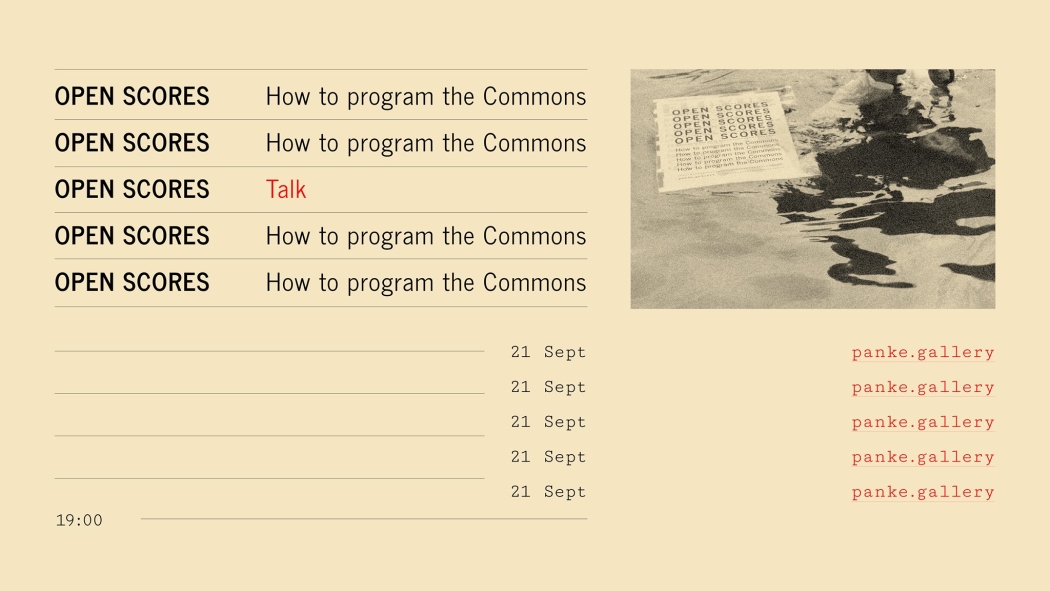Thick Webs & Continuous Relays: Feminist Epistemologies for the Digital Commons
This talk with Isabel de Sena examines several feminist concepts that are relevant for envisioning the (digital) commons. What they share is an understanding of knowledge as that which occurs by sustaining relational webs and ongoing relays, rather than as the endpoint of linear progressions.
Open scores
commons

About the event
Isabel de Sena discusses firstly Ursula Le Guin’s The Carrier Bag Theory of Fiction (1986), in which she urges that the first piece of technology was not a weapon but a bag for carrying seeds, asserting that the function of technology is not resolution but continuing process. Donna Haraway’s concept of “string figures” builds further on Le Guin by proposing how distributed forms of access to and dissemination of knowledge can give rise to collective agency, while Karen Barad’s diffractive methodology contributes to envisioning the commons as something that necessarily involves a constant transformation of knowledge – regarding both the objects of enquiry and the apparatus (resources, discourses) through which they are viewed. This is relevant for addressing how the commons can produce situated knowledges (Haraway) and understanding how its collective nature only seemingly suggests that it conflicts with the partial positionings of individuals within a collective.
Aiming to relinquish authorial control at least in part, the talk integrates a collectively produced layer of hypermedia in the hope of forming a thick web of bonds, associations and connections with other agents in the exhibition.